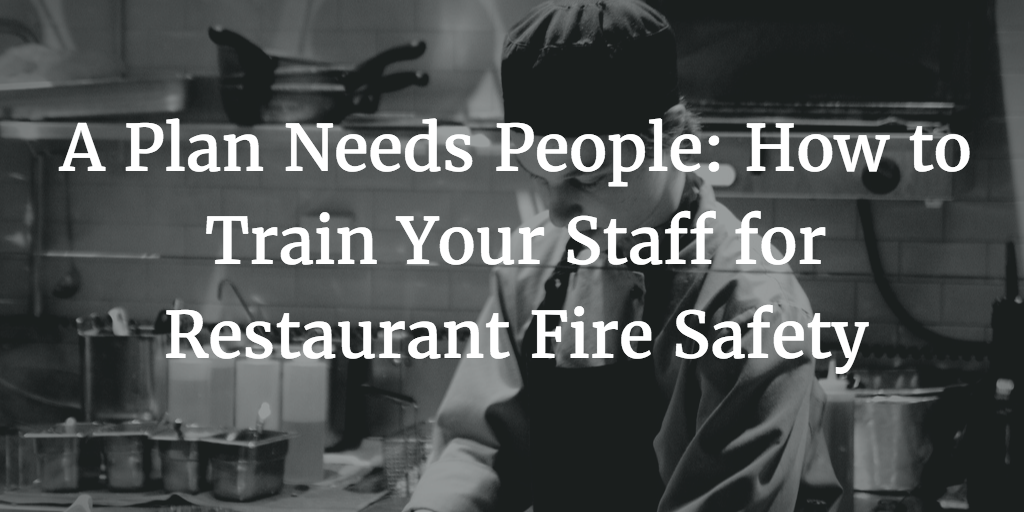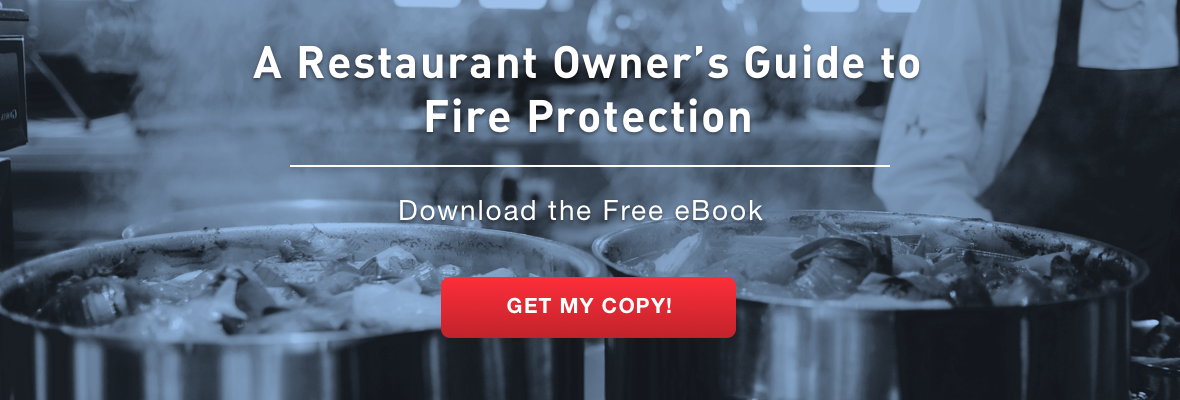Commercial kitchens are breeding grounds for deadly fires. Restaurants hold the highest potential for fires of any structure due to the high concentration of fire-causing variables. In fact, “there are approximately 8,160 structure fires at eating and drinking establishments each year. More than 50% of these fires were caused by cooking equipment.”
While fires are largely unpredictable events, there are ways to prevent their potential outbreak by limiting and controlling the variables that cause them. And the only plausible way to truly reduce the potentiality for fires at your establishment is to train your staff in the ways of restaurant fire safety.
If each and every member of your staff is prepared for the worst, and aware of all of the preventative measures they can take during their day to day duties, then fires will hold far less destructive potential for you, your business, your staff, and most importantly, your customers.
Let’s walk through some of the ways you can prepare your staff for when fire emergencies hit their boiling points.

Cultivate a Culture of Safety
Restaurant fires are no laughing matter. Even fire drills should be performed with a high degree of seriousness, professionalism, and urgency. Fire safety in your restaurant should be stressed and emphasized constantly. Failures to comply with fire safety measures by staff should be treated as severe affronts to the health and safety of your establishment.
The top restaurant fire safety precautions you should implore your staff to practice routinely are:
Eradicate all grease build-ups.
Clean any remnants of grease from every surface along with an extensive, and regular, cleansing of your kitchen’s exhaust hood. This will prevent air-flow restriction. Remember, grease is rampant in most kitchens, especially if there isn’t a strict cleaning schedule in place. Be sure to double check your broilers, convection ovens, grills, fryers, ranges, filters and vents.
If a grease fire does occur...
Be sure that all of your staff understand to keep water away from it. Water will not suppress a grease fire, water will spread it out.
If your facility uses a wood or charcoal burning oven...
Remove the piles of ash at least once a day. Safely store the ash at least 15 feet from the building in metal containers before disposing of it.
Keep staff smoking habits in check.
Restaurants are known to support staff smoking habits because of the long hours and high stress that are ascribed to restaurant jobs. Enact a policy that mandates the proper disposal of cigarettes and that designates a smoking area that’s intentionally situated away from any combustible materials or fire hazards.
Keep walking lanes clear and properly dispose of trash.
Trash accumulates especially fast in restaurants which requires a diligent and rigorous system for its proper disposal. Carefully store linens, paper products, boxes and food away from heat and cooking sources. Throw away soiled rags, cardboard boxes and wooden pallets once a day.
Offer emergency training.
Teach new employees about your unique evacuation protocol and the usage of fire-safety equipment. Providing trainings that provide shortcuts like remembering PAST (Pull out the pin, Aim at the base of the fire, use a Sweeping motion, stand Ten feet away) when operating fire extinguishers can greatly improve your staff’s fire fighting abilities.
Know Your Role
When a fire breaks out and panic settles in, you don’t want to rely on your staff thinking or problem solving on the go. Instead, set up a plan that’s unique to your establishment, and have your staff practice it until it’s embedded into their minds and they can perform it on autopilot.
If you have a sizable staff, consider integrating an off-shoot of the buddy system. Pair up staff who work well together and who also happen to work in the same area of your establishment.
Assign each person roles that they’ll take on during any fire emergency situation. For instance, wait-staff could be assigned as designated patron escorts while your kitchen staff can assure everyone in the restaurant is accounted for and safe. Someone else can keep customers calm and collected as the restaurant fire safety plan is carried out.
Who gets what role isn’t as important as assigning roles in the first place. When a restaurant fire flares up, each member of your staff should immediately know their designated place in your fire safety plan and should also be able to fulfill their emergency duties without any supervision.
This avoids potential frenzy and ensures the safety of patrons and staff. Also, be prepared to power down. Train at least one worker per shift how to shut off gas and electrical power in case of emergency.

